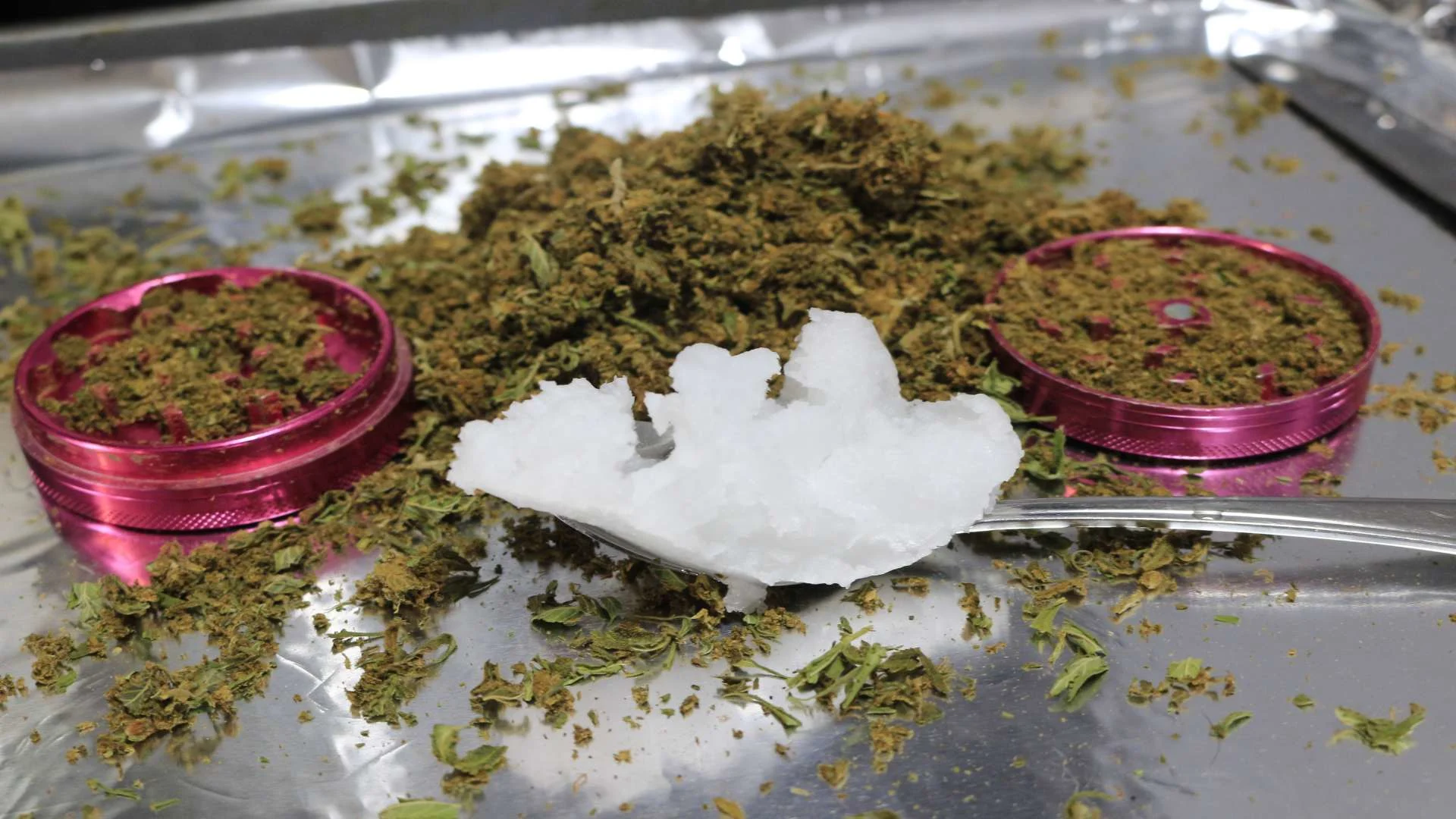Addiction Recovery
THC-O: Understanding the Risks of This Synthetic Cannabinoid in Addiction and Recovery

THC-O is a synthetic cannabinoid known for its high potency and potential risks. Learn how it impacts addiction, mental health, and overall well-being.
What is THC-O, and how does it differ from THC and CBD?
THC-O, or THC-O acetate, is a synthetic cannabinoid that is much more potent than THC. Unlike natural THC and CBD, which are found in cannabis plants, THC-O is chemically modified, making its effects more intense and unpredictable.
Is THC-O more potent than regular THC?
Yes, THC-O is estimated to be about three times stronger than delta-9 THC. It produces more intense psychoactive effects, often described as psychedelic, and can have a delayed onset, leading to unexpected and overwhelming experiences.
What are the potential health risks of using THC-O?
THC-O use comes with serious health risks, including increased chances of addiction, anxiety, paranoia, and cognitive impairment. Vaping THC-O may also cause lung damage due to harmful additives and a lack of regulatory oversight in its production.
Is THC-O legal in the United States?
THC-O’s legality is uncertain. Initially legal under the 2018 Farm Bill, recent federal rulings have restricted its sale. Many states have also moved to ban it, making its legal status highly variable depending on location.
Can THC-O use lead to addiction?
Yes, due to its high potency, THC-O can lead to dependence and addiction. Regular use may cause withdrawal symptoms, increased tolerance, and long-term mental health issues, especially for individuals with a history of substance abuse.
THC-O is a powerful synthetic cannabinoid that has gained attention for its intense effects and potential dangers. Marketed as a stronger alternative to traditional THC, it may seem appealing, but its potency and unknown long-term risks can lead to serious consequences.
If you or someone you love is struggling with substance use, understanding THC-O’s impact on addiction and mental health is crucial. While it’s often promoted as a legal high, it carries significant risks, especially for those in recovery. Knowing the dangers can help you make informed decisions and seek support.
What Is THC-O?
THC-O, or THC-O acetate, is a synthetic cannabinoid derived from THC. It is chemically modified to enhance its potency, making it significantly more potent than natural THC variants.
Definition and Chemical Structure
THC-O is an acetate ester of THC, meaning it has an added acetate group that increases its ability to cross the blood-brain barrier, resulting in a more intense high.
Comparison with Delta-9 THC and Delta-8 THC
Delta-9 THC: The primary psychoactive compound in cannabis.
Delta-8 THC: A milder variant with less potency.
THC-O: Estimated to be 2–3 times more potent than delta-9 THC, with delayed but more intense effects.
Methods of Synthesis and Sources
THC-O is synthesized by converting hemp-derived CBD into delta-8 THC, then modifying it with acetic anhydride. Due to its synthetic nature, it lacks regulation, raising safety concerns.
Potency and Psychoactive Effects
Increased Potency Compared to Traditional THC
THC-O is far more potent than delta-9 THC, producing more substantial and longer-lasting effects.
Reported Psychoactive Effects and Onset Times
THC-O has a delayed onset, taking 30 minutes to an hour to activate. Effects can last several hours and may be more immersive and sedative than standard THC.
Potential for Stronger or Different Experiences
Often described as psychedelic, THC-O can cause deep introspection, vivid thoughts, and even mild hallucinations. Its intensity increases the risk of anxiety, paranoia, and other adverse side effects, making it particularly risky for individuals in addiction recovery.
Health Risks and Side Effects
While THC-O is marketed as a more potent alternative to traditional THC, its effects on the body remain largely unstudied. Users report intense psychoactive experiences, but the increased potency also raises concerns about health risks and side effects.
Short-term effects may include dizziness, impaired coordination, and slowed reflexes, while long-term use may contribute to addiction and mental health challenges. Additionally, vaping THC-O poses unique dangers, as unregulated production can introduce harmful chemicals into the lungs.
Understanding these risks is crucial, especially for individuals with a history of substance abuse or mental health issues.
Short-Term Effects

THC-O can cause immediate side effects, including:
Dry mouth
Impaired coordination
Bloodshot eyes
Slowed reflexes
Communication difficulties
Long-Term Risks
Prolonged THC-O use may lead to:
Increased risk of addiction
Mental health issues like anxiety, paranoia, or depression
Unknown long-term health consequences due to a lack of research
Concerns with Vaping THC-O
Vaping THC-O raises additional health risks, such as:
Potential lung injuries from harmful additives
Respiratory issues due to unregulated production
Increased exposure to toxic byproducts

We’re Here To Help You Find Your Way
Would you like more information about thc? Reach out today.
Legal Status and Regulatory Concerns
The legal status of THC-O is complex and evolving. Initially considered a legal alternative to delta-9 THC due to its derivation from hemp, recent federal scrutiny has cast doubt on its legality.
Many states have moved to regulate or ban THC-O, citing safety concerns and its high potency. With shifting regulations and a lack of oversight, consumers face legal uncertainty and potential risks when purchasing THC-O products.
THC-O’s Legal Status
THC-O exists in a legal gray area. Initially derived from hemp, it was considered legal under the 2018 Farm Bill, but recent regulations have challenged its legality.
Comparison with Other Synthetic Cannabinoids
Delta-9 THC: Heavily regulated under federal law.
Delta-8 THC: Legally ambiguous, with bans in several states.
THC-O: Facing increasing legal scrutiny, with some states banning its sale and production.
Implications for Consumers and Law Enforcement
Lack of regulation means inconsistent product quality and safety risks.
Law enforcement agencies struggle to classify and regulate THC-O effectively.
Consumers face potential legal consequences as state and federal policies evolve.
THC-O's potency, health risks, and uncertain legal status make it a potentially dangerous substance, especially for those with addiction or mental health concerns. Caution and awareness are essential.
Impact on Addiction and Recovery

THC-O’s potency and unpredictable effects make it particularly concerning for individuals at risk of substance use disorders. Its use can lead to dependence and relapse, complicating the recovery process for those with addiction and mental health challenges.
Contribution to Substance Use Disorders
THC-O’s high potency increases the risk of dependence, especially among individuals with a history of substance abuse. The intense psychoactive effects may lead to habitual use, making it difficult for users to quit without professional support.
Challenges for Individuals in Recovery
For those in recovery, THC-O poses significant risks. Its powerful effects can trigger relapses or worsen mental health conditions such as anxiety and depression. Without regulation, users may also be exposed to contaminated or overly potent products, further complicating recovery efforts.
Importance of Awareness and Education
Healthcare providers and recovery professionals must stay informed about THC-O and its risks. Educating individuals in treatment about synthetic cannabinoids helps prevent relapse and promotes informed decision-making.

We’ll Lead You to New Heights
Do you have more questions about thc? Reach out.
Treatment and Support Resources
Overcoming THC-O dependence requires professional treatment and strong support systems. Recovery centers provide essential resources, therapy, and guidance to help individuals regain control of their lives.
Available Treatment Options
Individuals struggling with THC-O dependence can benefit from:
Behavioral therapy (e.g., cognitive-behavioral therapy, motivational interviewing)
Support groups and peer counseling
Medical interventions for withdrawal symptoms and co-occurring disorders
Role of Recovery Centers
Recovery centers play a crucial role in helping individuals overcome THC-O addiction. They provide structured environments, professional counseling, and peer support to guide users toward long-term sobriety.
Importance of Personalized Treatment Plans
Every individual’s journey to recovery is unique. Personalized treatment plans address underlying mental health issues, substance use history, and personal circumstances, increasing the chances of successful rehabilitation.
THC-O Use Taking Over Your Life? We’ll Help You Take It Back
THC-O may seem like a stronger alternative to traditional THC, but its risks far outweigh its appeal. From unpredictable effects to potential addiction, this synthetic cannabinoid can be dangerous, especially for those struggling with substance use.
If you or a loved one are experiencing the negative impacts of THC-O, professional help is available. The Edge Treatment Center provides compassionate, expert care to help individuals overcome addiction and regain control of their lives. Reach out today and take the first step toward a healthier, substance-free future.

We’re Here To Help You Find Your Way
If you or a loved one is struggling with addiction, there is hope. Our team can guide you on your journey to recovery. Call us today.
Written by
The Edge Treatment Center
Reviewed by
 Jeremy Arzt
Jeremy ArztChief Clinical Officer
Addiction Recovery
June 13, 2025
